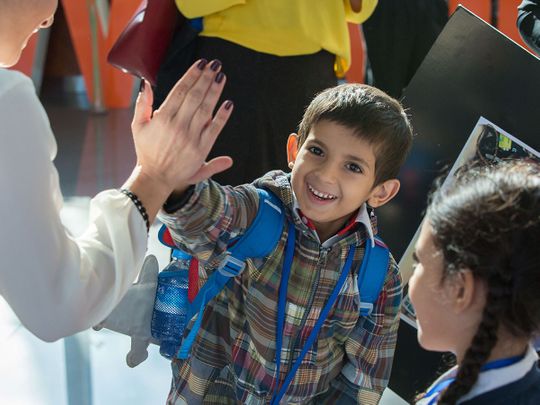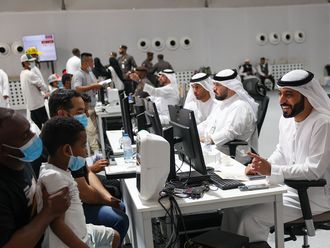
Dubai: The Knowledge and Human Development Authority (KHDA) has introduced Wellbeing Matters, a new guiding framework for Dubai private schools, which will give parents, teachers and students a shared understanding of what wellbeing looks like in schools, and how it can be improved.
Based on international wellbeing research and policies, and schools’ existing wellbeing data, the framework will set standards and enable greater improvement of wellbeing provision over time.
The guiding framework includes specific focus areas on which schools will be evaluated, such as how well schools are leading a wellbeing culture; how well they are listening to the needs of their students and staff members; and how well they are creating policies and processes to improve student wellbeing.
Fatma Belrehif, CEO of Dubai Schools Inspection Bureau, said: “Building on the legacy and the data provided by the five-year Dubai Student Wellbeing Census, many schools have already incorporated the values of wellbeing into their culture and practices.
“This framework represents the next stage of our wellbeing journey, enabling us to work more closely with schools, teachers and parents to ensure better learning outcomes and happier, healthier futures for our children. We appreciate the insights of all the school leaders who worked with us to develop the framework.”
International research points to wellbeing as an enabler of improved educational outcomes, enabling students to have more positive experiences of school; higher levels of self-esteem; and increased motivation.
The Dubai Student Wellbeing Census, conducted annually for five years, involved more than 100,000 students each year, and comprises one of the world’s largest and most culturally diverse data sets on student wellbeing. Schools received customised data reports, enabling them to initiative policies as well as track and improve their students’ wellbeing over time.
The Government of Dubai has consistently promoted wellbeing in education through its strategic plans as a means to building connected communities and thriving residents.
The results of each school’s wellbeing evaluation will be published with its inspection report and parent summary report, due to be released in 2023.
Wellbeing in education
KHDA has developed a whole-school approach to wellbeing advancement. Examples of this have been set by the education regulator like improved levels of school engagement, more positive experiences through different education phases; decreased likelihood of students dropping out of education; improved mental health, higher levels of self-esteem and self-efficacy; increased motivation and self-regulation.
Wellbeing of teachers and other staff members
KHDA has emphasised healthy, supportive and empowering working condition as a crucial enabler for school governance and leadership. Teacher turnover and teacher confidence have been identified as barriers for this.
Teacher wellbeing and that of other staff members must be a core, according to KHDA. Schools must have an effective recruitment and retention policy, foster manageable workloads and implement positive and meaningful professional appraisal systems.
Wellbeing of students
Schools must understand the uniqueness of each student and their wellbeing journey, considering their personality, character and context - including their braoder experience of family and community.
Schools must focus on strength based focuss of the individual’s personal strengths alongside their existing social and community assets, rather than on their deficits.












